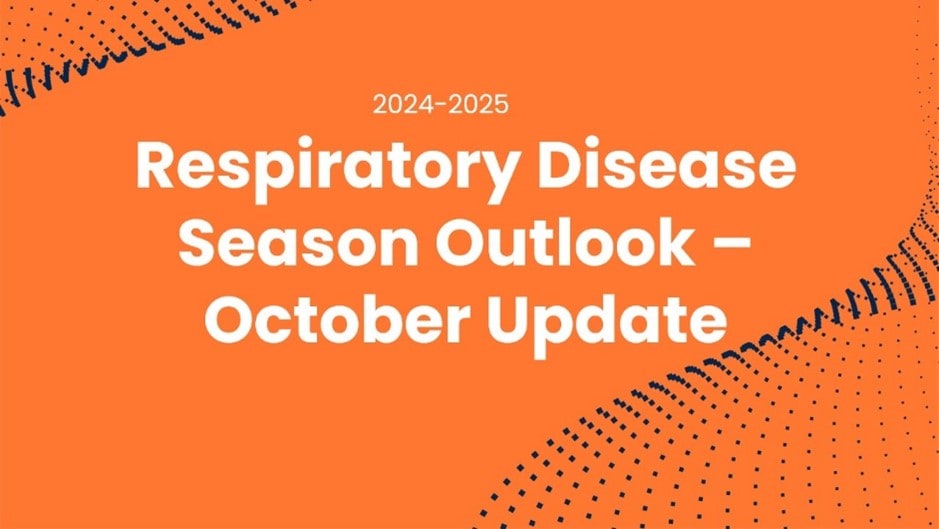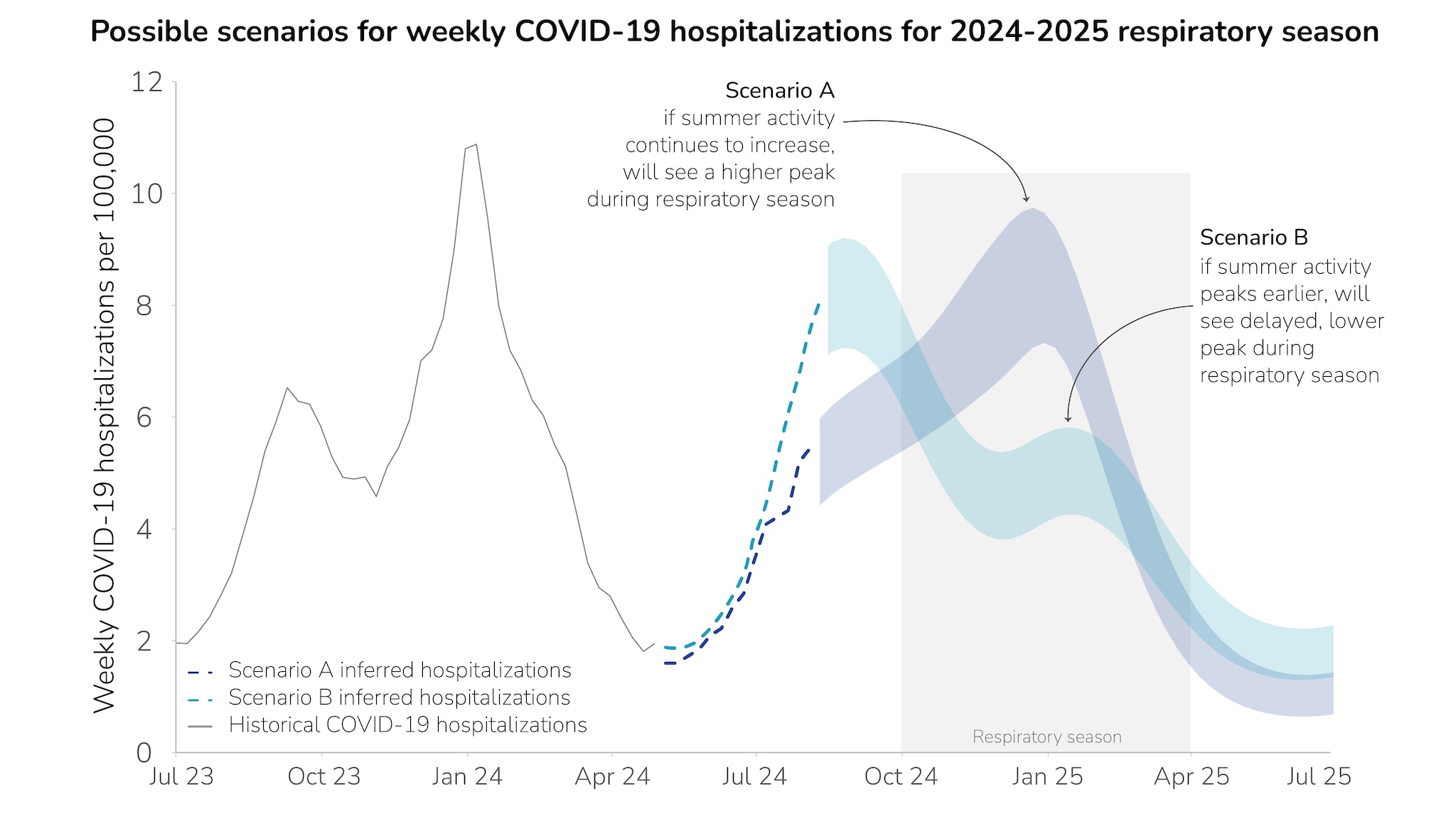What to know
CDC continues to expect the combined peak number of people hospitalized with flu, COVID-19, and RSV this fall and winter virus season will likely be similar to or lower than hospitalizations compared to last season. Vaccination is expected to play a key role in preventing hospitalizations.

Summary
What CDC knows
Every winter, the U.S. hospital system prepares for an increase in illnesses, emergency department visits, and hospitalizations caused by flu, COVID-19, RSV, and other seasonal respiratory viruses. As of mid-October, overall U.S. respiratory disease activity remained low. In most areas COVID-19 test positivity rates, emergency room visits, and hospitalizations were decreasing. Flu and RSV activity remained low nationally. Staying up to date with recommended immunizations can help prevent severe illness and hospitalization.
What CDC is doing
In August, CDC released an initial Respiratory Disease Season Outlook, combining expert opinion, historical data, and scenario modeling to provide decision-makers with information to assist with public health preparedness for the upcoming respiratory virus season. This outlook has now been updated with more information on what to expect this season, including modeling results showing how immunization can help prevent hospitalizations.
Role of vaccination
To understand the potential impact of vaccination, we used scenario modeling to compare scenarios for high and low vaccination uptake. The scenario model assumes that the 2024-2025 COVID-19 vaccine will have similar effectiveness as last year's vaccine. Results indicate that immunization could prevent many hospitalizations this season. For the low vaccination scenario, we used data from the first week of collection of the National Immunization Survey.
As of September 7, 24% of adults over the age of 18 report that they "definitely will" receive a vaccine this year. Prior modeling indicates that vaccine sentiment at the beginning of the season may be predictive of end-of season vaccine uptake. If 17% of adults over the age of 18 receive the COVID-19 vaccine this year, up to 98,000 hospitalizations could be prevented. If vaccination rates double from last season's rates, up to 227,000 hospitalizations could be prevented. Vaccination uptake for the high vaccination scenario was double the 2023-2024 levels throughout the season for each age group.
Outlook for the 2024-2025 respiratory virus season
Similar to the initial Outlook, CDC continues to expect that the 2024-2025 fall and winter virus season will likely have a similar or lower number of combined peak hospitalizations from flu, COVID-19, and RSV compared to last season. The initial outlook and this update are based on expert opinion, historical data, and scenario modeling for flu, COVID-19, and RSV.
To plan for the upcoming season, CDC created two possible scenarios for COVID-19 using hospitalization data (Scenario A) and emergency department visit data (Scenario B) to demonstrate the range of possibilities for how the season could unfold.
In Scenario A, if COVID-19 activity from the summer did not peak before the start of the respiratory season, hospitalizations could peak in late December. In Scenario B, if the COVID-19 summer wave peaked before the respiratory season began, a smaller second wave could happen in mid-January. Both scenarios predict fewer hospitalizations than last season, which would help keep overall hospitalizations for flu, COVID-19, and RSV lower this year.
According to data from the COVID-19-Associated Hospitalization Surveillance Network (COVID-NET), the summer wave peaked the week ending August 10. As a result, population immunity may be lower than it would be had the summer wave of infection continued to increase or if it had peaked at a higher rate. Therefore, we expect the upcoming season to be more similar to Scenario A, with a winter peak that is higher than the summer/fall peak before it. This is similar to COVID-19 trends over the last four years.
As of now, overall respiratory virus activity remains low nationwide, with COVID-19 cases going down and low flu and RSV activity. Vaccination is expected to play a critical role in reducing flu, RSV and COVID-19 hospitalizations.

Protect yourself and encourage your loved ones to get vaccinated
Immunization remains the best way to protect yourself against serious outcomes from viral respiratory illnesses this season. While immunization is important for everyone, it is especially important for people at higher risk of developing serious disease complications.
CDC recommends flu and COVID-19 vaccination for everyone 6 months and older. CDC recommends RSV immunization for those who are eligible, including:
- Some babies
- Pregnant women
- Older adults, including those ages 60-74 who are at increased risk of severe RSV
- Everyone ages 75 and older
For additional information about eligibility and access, see Getting Your Immunizations for the 2024-2025 Fall and Winter Virus Season.
